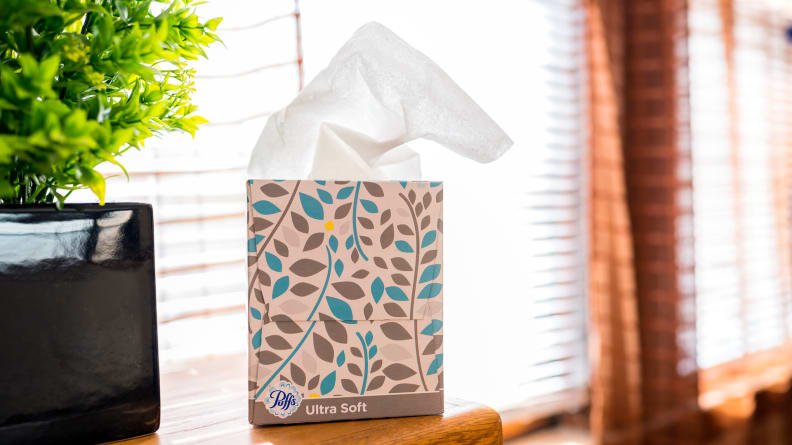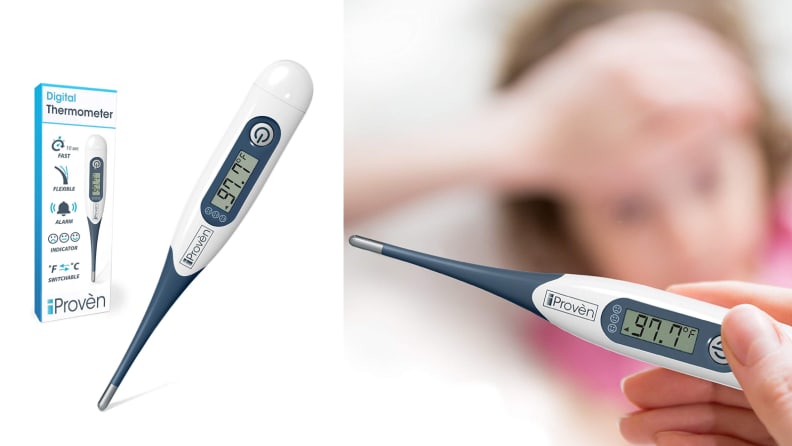Will these products protect you from coronavirus?
Those face masks may not be as effective as you think.
Products are chosen independently by our editors. Purchases made through our links may earn us a commission.
You can't turn on the news or check Twitter without seeing something about the coronavirus, a new strain of respiratory illness that the World Health Organization (WHO) says hasn't previously been identified in humans. And in light of the recent coronavirus outbreak, people are rushing to stores, scooping up what they think will protect against the illness, from face masks to hand sanitizer. But which of those things actually work—and what's the best way to use them?
While it has yet to be determined how coronavirus spreads, both WHO and the Centers for Disease Control and Prevention (CDC) provide detailed—and continually updated—information on the virus and best practices for prevention. To help you stay safe and healthy, read on about the most popular products people are buying in hopes of preventing coronavirus infection and the truth about how effective they are, according to WHO and the CDC.
1. Face masks
What it does: Covers the wearer's coughs and sneezes to prevent large particles from becoming airborne What it doesn't do: Prevent you from breathing in the coronavirus
Thanks to the fear of coronavirus, the price of face masks has skyrocketed, with many retailers selling out of the now-popular item. Celebrities like Gwyneth Paltrow and Kate Hudson have gotten in on the trend, posting pictures looking "stylish" in face masks. However, just because everyone—including celebs—is buying face masks doesn't mean you should.
In fact, the CDC cautions against it. "CDC does not recommend that people who are well wear a face mask to protect themselves from respiratory illnesses, including COVID-19," the agency warns. "You should only wear a mask if a healthcare professional recommends it." And Arininum, the company that makes Gwyneth's mask, says on its website, "Wearing a mask cannot eliminate the risk of infection as it depends on the proper fit of the wearer."
Other infectious disease experts agree, warning that those fabric face masks may become less effective the longer you wear them as they become wet from your breath. Even the N95-type respirator that Gwyneth is sporting is only known to be effective against Ebola and measles, and works best when professionally fitted so it forms a seal around the face of the wearer.
If you still feel a face mask is worth your while, be sure what you get isn't a hardware-store dust mask made from paper. While most of the top-rated masks on Amazon are already sold out, these ones from Target are another popular pick, with a nearly perfect rating on Target's website.
Get the Up&Up Anti-Viral Face Mask (10-Count) from Target for $5.99
2. Hand sanitizer
What it does: Kills some germs and is a good alternative to hand washing when unavailable What it doesn't do: Kills all germs
There's a lot of debate about whether or not hand sanitizer really protects against viruses like coronavirus or the flu. According to the CDC, it can—if you use it correctly. "If soap and water are not available, using a hand sanitizer with at least 60% alcohol can help you avoid getting sick and spreading germs to others," the CDC's website advises, adding the disclaimer that "alcohol-based hand sanitizers can quickly reduce the number of microbes on hands in some situations, but sanitizers do not eliminate all types of germs."
The secret to making your hand sanitizer work for you is making sure you use enough of it, says the CDC, which recommends rubbing the gel over all the surfaces of your hands and fingers until your hands are dry. This should take around 20 seconds, the CDC explains, noting that you should check the instructions first to see exactly how much you should squirt into your palm.
Get the Purell Advanced Hand Sanitizer Naturals from Target for $2.99
3. Sanitizing wipes
What it does: Disinfects the surfaces in your home What it doesn't do: Kills 100 percent of all germs
Think of all of the things you touch in the outside world that could contain viruses—then think about all of the things you touch inside your home immediately afterward. Yikes. An important step in preventing the spread of illness, aside from washing your hands as soon as you come inside, is keeping your house as germ-free as possible, which you can do with wipes like these popular Clorox ones.
However, according to the CDC, you're likely using them wrong. Apparently most people don't use enough wipes to kill the majority of germs (whoops). The CDC explains, "Disinfection usually requires the product to remain on the surface for a certain period of time (i.e., letting it stand for 3 to 5 minutes)." That means you'll need a lot more than one little Clorox wipe to keep your home safe.
Get the Clorox Disinfecting Wipes (Pack of 3) from Amazon for $14.99
4. Tissues

Protect your nose with Puffs.
What it does: Acts as a cover for coughs and sneezes and is used for blowing your nose What it doesn't do: Prevent or cure any coronavirus symptoms
No, tissues aren't an effective way to protect against coronavirus. However, they are necessary for proper cough/sneeze etiquette when you're ill, so you don't share your germs with others. The CDC says you should always cover your mouth and nose with one and dispose of your used tissue in the trash immediately after. Of all the tissues we've tested, we like Puffs Ultra Soft the best because, as the name suggests, they're super soft and gentle on your nose. Plus, they're incredibly durable so they won't tear easily when you're using them.
Get Puffs Ultra Soft (4-Pack) from Amazon for $6.49
5. Thermometer

Be prepared when fever hits.
What it does: Gives you an accurate reading of your body temperature What it doesn't do: Prevent or treat your fever
One of the tell-tale symptoms of the coronavirus? A fever. And while you might be able to feel when your temperature is higher than normal (hello, sweats, chills, and a fiery forehead), you won't know for sure unless you have a thermometer, which is something you should always have in your medicine cabinet. This one—which has nearly 3,000 positive reviews on Amazon—is praised for being both accurate and quick and easy to use (it gives you a reading in just seconds!).
Get the iProven Digital Medical Thermometer from Amazon for $21.99
